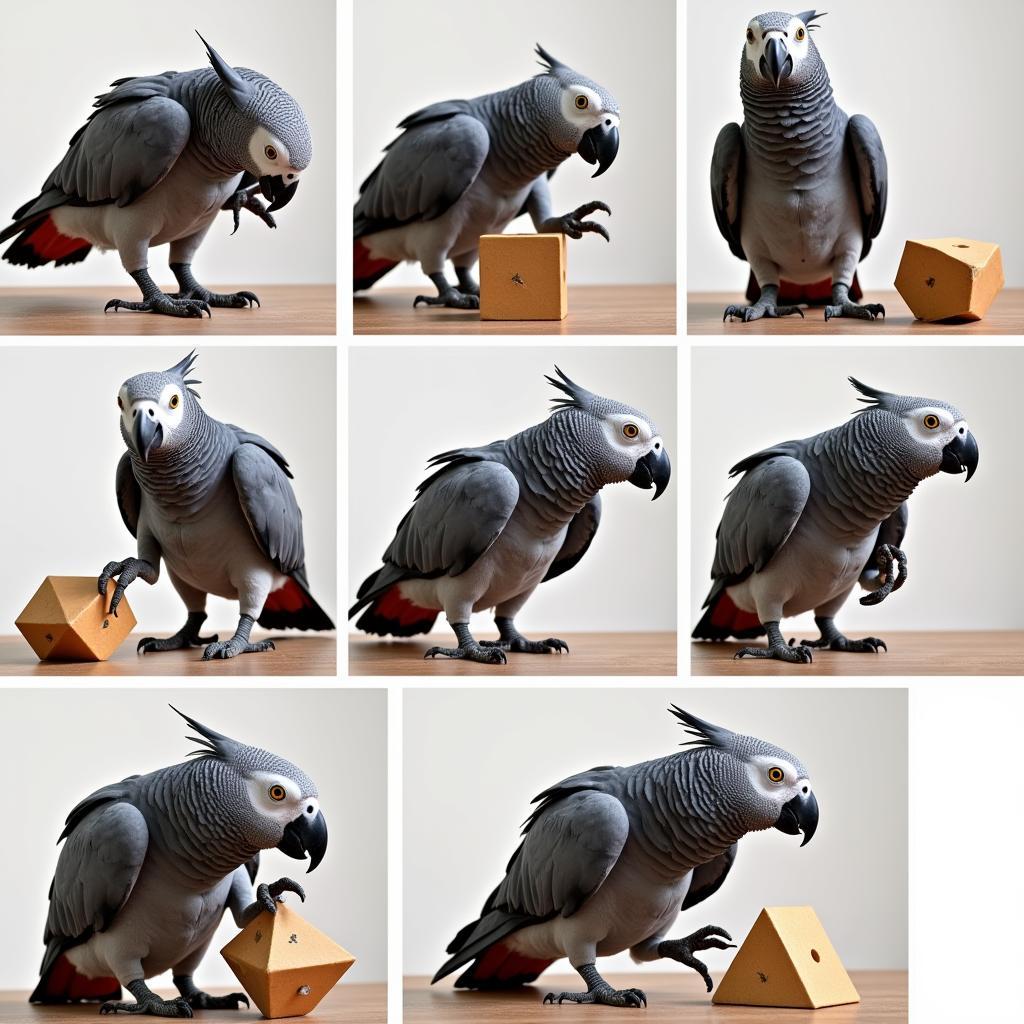African Dog Breeds: A Comprehensive Guide to Their History, Characteristics, and Care
African dog breeds are renowned for their unique appearances, diverse temperaments, and rich cultural significance. These canines have played vital roles in the lives of African communities for centuries, serving as companions, working animals, and symbols of cultural heritage. This comprehensive guide delves into the fascinating world of African dog breeds, exploring their history, characteristics, and care requirements.
The History of African Dog Breeds
The history of African dog breeds is deeply intertwined with the continent’s diverse cultural landscape. Many of these breeds have been carefully bred and selected over generations, adapting to the unique environmental conditions and lifestyle needs of their respective regions.
Ancient Origins:
- Evidence suggests that dogs first appeared in Africa around 15,000 years ago. The African wild dog, known as the painted dog, is thought to be one of the earliest dog breeds to evolve on the continent. This wild canine shares a common ancestor with the domestic dog and has influenced the genetics of several African breeds.
Cultural Significance:
-
Dog breeds have long been an integral part of African cultures. In many communities, dogs have served as loyal companions, guardians, and working animals, assisting in tasks like hunting, herding, and protecting livestock.
-
Several breeds, such as the Basenji, have played significant roles in traditional rituals and ceremonies. The Basenji, for example, is known for its unique vocalizations and is sometimes considered a sacred animal in certain cultures.
Popular African Dog Breeds:
1. Basenji:
The Basenji is a small, slender dog with a distinctive coat of short, smooth fur. It originated in Central Africa, where it was used as a hunting dog. Known for its agility, speed, and ability to hunt small game, the Basenji is a highly intelligent and independent breed.
“The Basenji’s unique vocalizations, often described as a yodel or a barkless howl, are a result of its unusually shaped larynx.” – Dr. Sarah Jones, Veterinary Specialist
2. Rhodesian Ridgeback:
The Rhodesian Ridgeback is a large, muscular breed with a distinctive “ridge” of hair running down its back. It was developed in South Africa by early European settlers to protect them from lions and other predators. The Rhodesian Ridgeback is a powerful, loyal, and protective breed, often used as a guard dog.
“The Ridgeback’s distinctive ridge of hair is a genetic trait that serves no practical purpose but has become an iconic feature of the breed.” – Professor David Smith, Canine Genetics Expert
3. Africanis:
The Africanis is a medium-sized dog with a short, smooth coat and a wide range of colors. It is a landrace breed, meaning it has evolved naturally without human intervention. The Africanis is known for its intelligence, adaptability, and loyalty.
“The Africanis is a versatile breed that can adapt to various environments and lifestyles, making it a popular choice for families in Africa.” – Mr. John Khumalo, Dog Breeder
Understanding African Dog Breeds:
Temperament and Behavior:
-
African dog breeds are known for their diverse personalities. Some, like the Basenji, are independent and reserved, while others, like the Ridgeback, are loyal and protective.
-
The temperament of a dog can vary depending on its individual personality, environment, and training.
Care Requirements:
-
African dog breeds have specific care requirements, which may differ depending on the breed.
-
It’s crucial to understand the specific needs of a breed, such as exercise, diet, and grooming, to ensure their health and well-being.
Choosing the Right African Dog Breed:
-
Before adopting an African dog breed, it’s important to consider your lifestyle, space, and experience.
-
Do your research and choose a breed that aligns with your individual needs and expectations.
-
Adopting a dog from a reputable breeder or shelter can help ensure that you get a healthy and well-adjusted companion.
Conclusion:
African dog breeds offer a fascinating glimpse into the continent’s rich cultural heritage and diverse animal kingdom. Their unique appearances, temperaments, and histories make them truly special. If you’re considering welcoming an African dog into your life, be sure to do your research and choose a breed that fits your lifestyle and expectations.
FAQ:
-
Q: What are some of the most common African dog breeds?
-
A: Some of the most common African dog breeds include the Basenji, Rhodesian Ridgeback, Africanis, Boerboel, and Abyssinian Sand Terrier.
-
Q: What are the unique characteristics of African dog breeds?
-
A: African dog breeds often possess unique physical traits, temperaments, and abilities that have evolved to suit the continent’s diverse environments and cultural needs.
-
Q: How do I care for an African dog breed?
-
A: The care requirements for African dog breeds can vary depending on the breed, but they generally require regular exercise, a balanced diet, and appropriate grooming.
-
Q: Are African dog breeds suitable for first-time dog owners?
-
A: Some African dog breeds may be suitable for first-time owners, while others may require more experience. It’s crucial to research the specific needs of a breed before adopting.
-
Q: What is the best way to find an African dog breed?
-
A: The best way to find an African dog breed is to search for reputable breeders or adopt from a local shelter or rescue organization.
-
Q: Can African dog breeds be found outside of Africa?
-
A: Yes, African dog breeds can be found in many countries worldwide, including the United States, Europe, and Australia.
-
Q: What are some resources for learning more about African dog breeds?
-
A: You can learn more about African dog breeds through online resources, dog breed clubs, and veterinary professionals.
This guide provides a comprehensive overview of African dog breeds, highlighting their history, characteristics, and care requirements. We encourage you to explore the fascinating world of these remarkable canines and discover the perfect African dog breed to welcome into your life.

